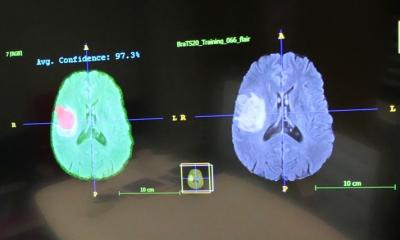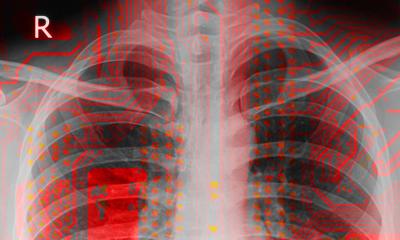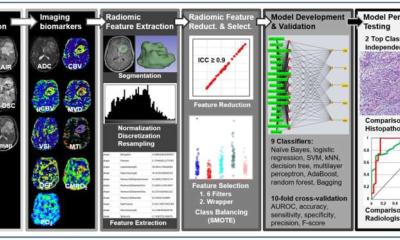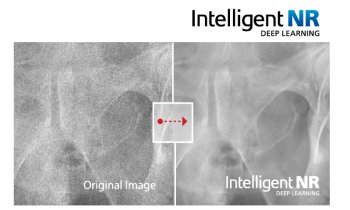Article • Will machines take over?
AI? We shouldn’t worry about it – yet
Humanity is not doomed to submit to machines as in the Terminator movies – or at least not yet. Artificial intelligence (AI) systems are still far from capable to imitate the human brain in all its complexity. Yet there is no doubt that AI will have a global and huge impact, particularly for professionals such as radiologists, who should look at AI critically and focus on the many new opportunities that will arise, advises Australian AI expert Professor Toby Walsh.
Report: Mélisande Rouger
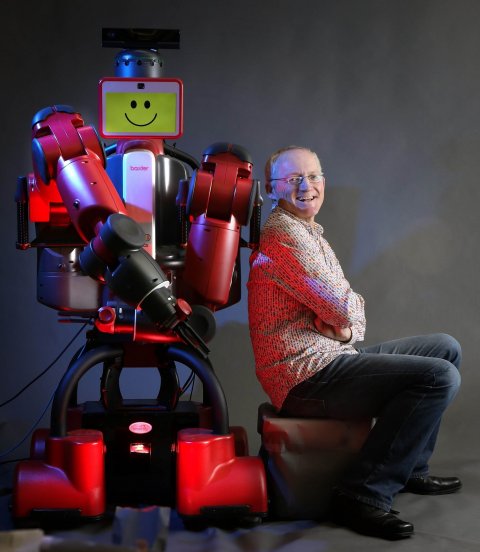
‘People have woken up to the idea that AI is going to be interesting and transformative because it will impact on every aspect of our lives,’ explained Toby Walsh, a professor of AI at the University of New South Wales, speaking at the AI Premium meeting organised by the European Society of Radiology and the European School of Radiology in Barcelona. AI will have a major impact on global economy, according to audit giant PwC, which predicted it could generate 15.7 trillion USD and account for 26.1% of GDP in China, 14.5% in North America and 10% in Europe by 2030. ‘That’s an inflation just in terms,’ said Walsh, who is dubbed ‘the rock star of the digital revolution’ and has published many books on the topic. ‘16 trillion USD is China and India’s GDP put together. It’s like we’ve discovered a whole new continent. Last time that happened, it had big ramifications for the world’s economy.’ Walsh’s last work, ‘2062: The World that AI made’, is an optimistic vision of how to help mankind benefit from AI, rather than helplessly suffer the consequences. ‘Every profession and particularly data intensive professions, such as radiology, will be affected,’ he said.
Recommended article

Article • AI in imaging
Radiologists must control their own destiny
Radiologists have not ended talk about artificial intelligence and machine learning but, rather than fear for the future of their profession, they themselves must decide how that should be, an eminent expert Dr Woojin Kim warned ECR delegates in Vienna in March. Two years in discussion and the hype around artificial intelligence (AI) is far from fading. Interest has never been higher, and the…
Four exponentials
Walsh shared a brief history of AI, which was boosted by four exponentials, including Moore’s law, according to which the number of transistors in computers double almost every two years. This observation has accurately guided projection rates and technological developments for the past 50 years, all of which have led to immense computing power. ‘Things that we dreamed about doing, we just do now because we have more computing power. We have more computing power in our smartphones than was once used to fly a man to the moon,’ he observed. Moore’s law is now officially dead and scientists need to design new architecture to increase computing power. One trend is to design specified chips to do AI and do more on the device energy, he says.
Along the doubling of transistors count, there has been a doubling in data. ‘We’re collecting more and more data, and have the ability to store more and more data. This continues to help expand AI,’ Walsh pointed out. The third exponential was a doubling in performance of algorithms to recognise objects and limits. Back in 2010, one in 10 objects were classified properly. Since then performance has been doubled every two years, and now it recognises objects better than the average human does. Last but not least, investment has doubled every two years over the past decade, allowing skyrocketing advances in AI.
The impact on radiology
A robot developed by a colleague at Berkley University takes 25 minutes to fold a towel. Easy things for us are often surprisingly hard for computers
Toby Walsh
AI started to make headlines in 2015, when humans lost against machines in a Go competition. Nonetheless, and despite all the progress made, it is remarkable how slowly the machine learns compared to humans, even with unlimited resources of time, Walsh underlined. ‘There are still many things that machines can’t do as well as humans, some of which are plain trivial. A robot developed by a colleague at Berkley University takes 25 minutes to fold a towel. Easy things for us are often surprisingly hard for computers. What’s more, we have made almost no progress in artificial general intelligence that matches humans in their full capabilities.’
Computers can do narrow tasks, but nothing approaches the human brain yet. Machines are not going to take over anytime soon. ‘We have 50, 100 or maybe 200 more years before it can match the human brain, if ever. So, we should not worry about it,’ he said. Instead, people should look into the exciting new opportunities and just learn about the field. This starts with differentiating between AI and machine learning. ‘People often mix up these terms. But there’s a lot more to your intelligence than learning.’
Other types of intelligence include, for instance, perception, speech and speech recognition, NLP, vision and reasoning. A lot of AI research focuses on machine learning, but much more could be done in workflow, image optimisation, etc. All these fields are interesting to explore for medical imaging.
Profile:
World-renowned artificial intelligence professor at the University of South Wales and Data61, Toby Walsh was named by the media as a ‘rock star’ of the digital revolution and has been included on a list of the 100 most important digital innovators in Australia. He is the author of the books ‘IT’s Alive’, ‘Android Dreams’ and the soon to be published release ‘Machines That Think’ and ‘2062: The World that AI Made’. The professor is a sought-after keynote speaker on how AI influences business, education, warfare, personal development, and finance, and more. Together with Pope Francis, he was voted runner up in the Person of the Year Award by the Arms Control Association, recognising his work in ensuring the safe use of AI in warfare.
13.06.2019



